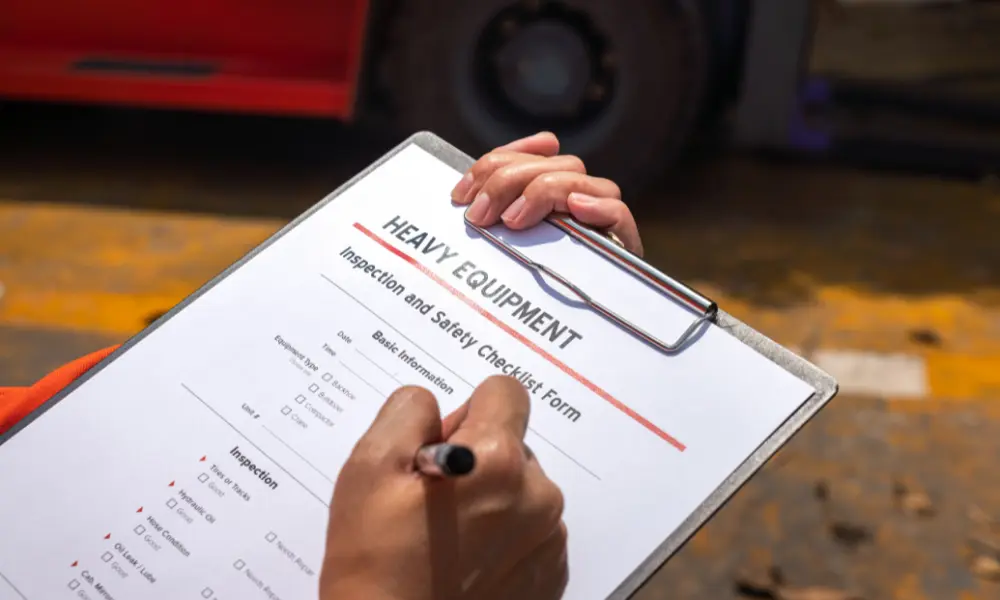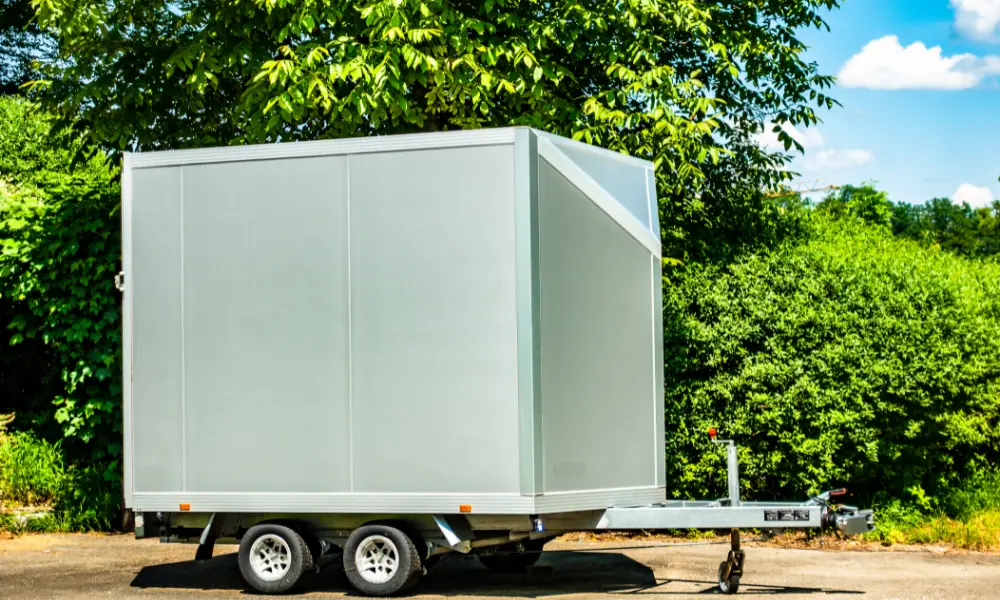If you’re a car owner in Connecticut, understanding the state’s vehicle inspection requirements can save you time and hassle. These inspections, managed by the DMV, ensure your vehicle meets safety and emissions standards. Every vehicle must pass an emissions test every two years to comply with Connecticut law. By knowing the requirements, you can keep your vehicle roadworthy and avoid fines.
Overview of Connecticut’s Vehicle Inspection Requirements
In Connecticut, vehicle inspections focus on both emissions and safety. These checks ensure that vehicles meet the state’s environmental standards and are safe to drive.
Emission Testing Mandates
Connecticut requires all vehicles to undergo emissions testing every two years. The state’s Department of Motor Vehicles oversees the Connecticut Emissions Program. You must bring your vehicle, along with a $20 fee and your test notice, to a state-approved emissions test center.
The type of emissions test depends on your vehicle’s make and model. New residents must have their vehicles tested soon after moving to Connecticut. If your vehicle fails the test, you’ll need to get repairs and pass a retest. This program aims to reduce air pollution and maintain environmental quality.
Safety Inspections Criteria
Safety inspections in Connecticut are required for all used vehicles before they are sold. The Department of Motor Vehicles sets guidelines to ensure that vehicles are roadworthy and safe.
Safety checks include inspecting brakes, steering, tires, lights, mirrors, and seat belts. If any of these components fail, they must be repaired before the vehicle can pass the inspection. Vehicles with modifications, like stretched or modified vehicles, need re-inspection every 24 months by the CTDOT.
These requirements help ensure that vehicles on Connecticut roads are safe for everyone.
Vehicle Types and Inspection Specifics
Understanding the inspection requirements for different vehicle types in Connecticut is essential. Various vehicles, from standard passenger cars to specialty vehicles, have specific guidelines to ensure safety and compliance.
Standard Passenger Vehicles
In Connecticut, standard passenger vehicles must undergo safety inspections and Connecticut emissions testing every two years. You need to bring your registered vehicle along with a Vehicle Identification Number (VIN) verification to a state-approved emissions test center. The basic safety inspection includes checking the brakes, lights, steering components, tires, and other essential parts.
New residents must have their vehicles tested before registering them. Ensuring these are in good condition will help you avoid fines and keep your vehicle compliant with Connecticut laws.
Commercial and Heavy-Duty Vehicles
Commercial vehicles and heavy-duty trucks over 18,000 lbs GVWR, along with trailers over 10,000 lbs GVWR, are required to undergo rigorous inspections. The Connecticut DMV requires these vehicles to be inspected at DMV facilities under the North American Standard Level I inspection.
These inspections are crucial for ensuring road safety and include checking the brake systems, lights, exhaust systems, and other critical safety components. For continued compliance, you should ensure annual inspections are up to date.
Motorcycles and Motorized Bicycles
Motorcycles and motorized bicycles also have specific inspection guidelines. These vehicles must meet safety standards to operate on Connecticut roads. Inspections for motorcycles and motorized bikes include checking the brakes, tires, lights, and steering components.
For motorized bicycles, the inspection might focus more on verifying the proper functioning of the engine and safety gear. Keeping your motorcycle or motorized bicycle in good shape ensures your ride is safe and legal.
Specialty and Exempt Vehicles
Certain specialty vehicles such as electric vehicles, hybrids, antique vehicles, and farm vehicles may have different inspection requirements or even be exempt from standard inspections. For instance, antique vehicles usually do not need regular emissions tests but must still be safe to operate.
Farm vehicles might be subject to different rules if they are used exclusively on private property. Always check the latest inspection requirements on the CT DMV website to confirm if your vehicle qualifies for any exemptions.
Registration and Emission Test Compliance
To register a vehicle in Connecticut, you must meet specific inspection and emissions test requirements. This ensures that your vehicle is safe and compliant with state emissions standards.
Initial Registration and Inspection Process
When you first register your vehicle in Connecticut, you must pass an emissions test. This is to ensure that your vehicle meets the state’s environmental standards. The Connecticut DMV and its Emissions Division handle these tests.
You will receive an emissions test notice indicating when your test is due. Visit a state-approved Testing Center in towns like Wethersfield to complete the test. Bring your vehicle, the $20 fee, and your test notice.
If your vehicle fails the emissions test, you have 60 days to fix the issue and retest. Pay any late fees online to avoid problems with your Vehicle Registration. Failure to comply can prevent you from registering or renewing your vehicle’s registration.
Inspection Requirements for Out-of-State Vehicles
If you are moving to Connecticut or purchasing a vehicle from another state, you must meet specific inspection requirements. Out-of-State Vehicles must pass an Emissions Inspection and a safety inspection before you can complete your Vehicle Registration.
Bring your vehicle to a Connecticut Testing Center for these inspections. The safety inspection includes checks on brakes, lights, tires, and other safety features. If your vehicle fails, you must fix the issues and pass the inspections before it can be registered.
These steps ensure that vehicles coming into Connecticut meet state safety and emissions requirements, ensuring safer and cleaner roads for everyone.
Inspection Exemptions and Extensions
Certain vehicles in Connecticut may qualify for specific exemptions or extensions from the regular inspection requirements, like emissions testing. Understanding who is eligible and how you can obtain a waiver is important for ensuring compliance with state law and avoiding unnecessary fines.
Eligibility for Inspection Exemptions
In Connecticut, some vehicles are exempt from emissions testing. If you own an electric-powered vehicle, you’re likely exempt due to zero emissions. Historic vehicles over 25 years old also often fall into this category.
Some commercial vehicles with specific inspection requirements may be subject to differing rules. For example, commercial vehicles over 18,000 lbs. GVWR have unique regulations that could impact exemption eligibility.
Military personnel can also qualify for exemptions. If you’re on active duty and stationed out of state, you might not need to have your vehicle inspected.
Economic Hardship Waiver could be available if you can demonstrate financial difficulties in complying with inspection requirements.
Granting of Waivers and Extensions
If you’re seeking a time extension or waiver, Connecticut has processes in place. You can request an extension if you’re temporarily out of state. Fill out the Out-of-State Extension form and submit it with the required documentation to delay your inspection.
An Economic Hardship Waiver might be suitable if you’re facing financial issues. This waiver allows extra time or alternative compliance methods.
Make sure to contact the Connecticut Department of Motor Vehicles (DMV) for specific instructions on obtaining a waiver. Detailed regulations and more information are available on the CT DMV website about what documents you’ll need and the steps to follow.
Understanding the Inspection Results
Understanding your vehicle inspection results can be vital for ensuring your vehicle is safe and compliant with Connecticut law. You’ll learn what your Vehicle Inspection Report means and steps to take if you fail the inspection.
Decoding the Vehicle Inspection Report
The Vehicle Inspection Report (VIR) you receive from the DMV after an inspection contains essential information. It highlights any issues with your vehicle’s safety components such as brakes, lights, and tires. Emissions results are also included, indicating if your car meets environmental standards.
Your report will list necessary repairs that must be addressed before your vehicle can be considered safe and roadworthy. Sometimes, there might be a mention of a Functional Diagnosis Waiver, which you can apply for if repairs are cost-prohibitive.
Handling Failed Inspections and Retests
If your vehicle fails the inspection, you will need to address the listed issues. Most of the repairs can be done at a Certified Emissions Repair Facility or any trusted mechanic. Once repairs are complete, you must have your vehicle retested.
Retesting usually comes with penalties or late fees if not done within the allotted time. It’s crucial to return to a DMV facility for this retest to avoid any penalties.
Failing to complete the necessary repairs and retests could lead to increased fines and potential legal issues, making it important to act swiftly.
Fees, Violations, and Legal Considerations
When it comes to vehicle inspections in Connecticut, it is crucial to understand the fees you may face and the penalties for non-compliance with state regulations.
Applicable Fees for Inspection and Testing
You will need to pay specific fees for both safety and emissions inspections. For instance, the Connecticut Department of Motor Vehicles charges a $20 fee for emissions tests. This fee must be paid at a state-approved emissions test center. Payments can be made using a credit card or other accepted methods.
If your vehicle fails the emissions test, you might need to pay for repairs before retesting. A waiver for the testing fee is generally not available, so ensure you are prepared to cover these costs.
Safety inspections, such as those for commercial vehicles, may have additional fees. According to the CT DMV requirements, these can vary depending on the type of inspection required.
Penalties for Non-Compliance
Failure to comply with Connecticut’s vehicle inspection requirements can lead to various penalties. Law enforcement officers, such as police officers and DMV inspectors, can issue fines if your vehicle is found non-compliant.
If a vehicle fails to meet the emissions standards, it must be repaired and retested. Operating a non-compliant vehicle can result in fines and potentially even more severe legal actions.
Furthermore, inspection stations require appointments for inspections and may ask for a deposit. Failure to keep the appointment can result in forfeiting your deposit, which cannot exceed the inspection fee.
Ensuring your vehicle passes all required tests not only helps you avoid penalties but also contributes to reducing air pollution in Connecticut.















